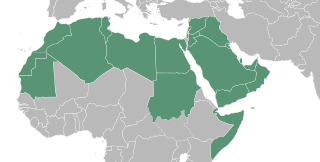Every agreement to register a generic top level domain name, that is to say one ending with the suffix ".com", ".org" or ".info", contains a clause requiring the applicant to agree to submit any dispute with a trade mark owner over the domain name to a form of alternative dispute resolution known as "a mandatory administrative proceeding". This is a form of adjudication by a one or three member tribunal appointed by an approved administrative-dispute-resolution service provider. Those service providers are appointed by the Internet Corporation for Assigned Names and Numbers ("ICANN"), a California company which manages the international domain name system ("DNS") in accordance with a memorandum of understanding with the US Department of Commerce dated 25 Nov 1998.
ICANN has appointed five administrative-dispute-resolution service providers, the latest being the Arab Center for Domain Name Dispute Resolution ("ACDR") which was approved on the 18 May 2013. The others are the Asian Domain Name Dispute Resolution Centre, the Czech Arbitration Court of Arbitration Arbitration Center for Internet Disputes, the National Arbitration Forum and the World Intellectual Property Organization ("WIPO"). ICANN has published the process by which it considers applications for approval as an administrative-dispute-resolution service provider on its website in Information Concerning Approval Process for Dispute-Resolution Service Providers.
The function of an administrative-dispute-resolution service provider is to receive complaints by those who object to the registration of a domain name and allocate them to neutrals known as "administrative panels" to determine whether the complaint is well founded. If the panel finds that the complaint is well founded he or she can order the company that registered the domain name ("the registrar") to cancel the registration or transfer it to the complainant. The registrar is required by its contract with ICANN to wait 10 business days to see whether the transfer is challenged in the courts in which the registrar or the domain name holder is domiciled. If it is not challenged the registrar is contractually bound to carry out the panel's order.
The memorandum of understanding sets out a number of principles by which the DNS was to be managed one of which was competition. Art II C.2 provides:
"This Agreement promotes the management of the DNS in a manner that will permit market mechanisms to support competition and consumer choice in the technical management of the DNS. This competition will lower costs, promote innovation, and enhance user choice and satisfaction."That include competition between registrars for applications for the registration of domain names and competition between administrative-dispute-resolution service providers in the resolution of domain name disputes. As all administrative-dispute-resolution service providers have to decide domain name disputes in accordance with ICANN's Uniform Domain Name Dispute Resolution Policy and its Rules for Uniform Domain Name Dispute Resolution Policy, the only scope for competition lies in fees and service.
As the fees charged by the ACDR are comparable with WIPO's and those of other service providers the ACDR must compete on service. The choice of service provider lies with the complainant who will consider such factors as language, convenience and confidence in the panel. The ACDR is located in Amman and its offices are described in its application to ICANN for approval as a service provider describes them as "spacious" and "state of the art". Its staff are said to be "educated in English or French, or both, next to Arabic". Its panel of neutrals are drawn from across the world as well as the Middle East and includes several members of other service providers' panels.
Those factors would might be expected to appeal to complainants in Jordan and other Middle East North African countries but perhaps not so much to those outside the region unless they have trade marks in Arabic. According to the WIPO over 88% of all its disputes since 1999 have been conducted in English followed by Spanish and French accounting for 4.1% and 2.5% respectively. No cases have been conducted in Arabic though there have been 83 cases in Turkish and one in Hebrew. Whereas 663 complaints have been filed from the USA, 267 from France, 220 from Germany and 189 from the UK so far this year there have been only 3 from Qatar and 6 from the United Arab Emirates. It is perhaps not surprising the no decisions have been published by the ACDR so far.
However, that may change with the registration of an increasing number of domain names in Arabic script, more registration agreements in the Arabic language and the economic development of the region generally. The Asian Domain Name Dispute Resolution Centre appears to have developed a market in resolving disputes in Mandarin and that may be a model for the ACDR.
Should anyone wish to discuss this article or domain name disputes in general, he or she should call me on +44 (0)20 7404 5252 during office hours or use my contact form.



.jpg/800px-Kern_West_Oil_Museum_(3354873631).jpg)
